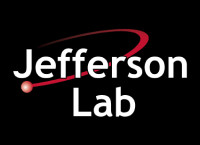The DnC2s project has successfully applied reinforcement learning with uncertainty quantification to the Fermilab gradient magnet power supply in the Fermilab Booster. This data-driven machine-learning-based surrogate model highlights the importance of incorporating uncertainty quantification, particularly for out-of-distribution uncertainties. These uncertainties need to be well-calibrated and understood to prevent reinforcement learning algorithms from exploring state and action areas that are poorly represented in the available data. In future endeavors, the project aims to extend this application to other facilities such as the Jefferson Lab Continuous Electron Beam Accelerator Facility and SLAC National Accelerator Laboratory.
Partnership:
- Oak Ridge National Laboratory (https://www.ornl.gov/)
- Pacific Northwest National Laboratory (https://www.pnnl.gov/)
- University of California, Santa Barbara (https://www.ucsb.edu/)
- Arizona State University (https://www.asu.edu/)
Project Link:
Related Publications:
The primary objective of this SciDAC proposal is to develop a framework that can extract the maximum amount of information on a quark and gluon tomography of nucleons and nuclei from high-energy scattering data. The data science department is focused on developing a composable and scalable generative AI framework to address the primary objective.
Partnership:
- Argonne National Laboratory (https://www.anl.gov/)
- Virginia Tech (https://www.vt.edu/)
- Old Dominion University (https://www.odu.edu/)
Related Publications:
As the second most populous city in the Hampton Roads region with a total population of over 1.7 million, Norfolk is home to a diverse population and is a major economic and cultural center. Additionally, the site of the world’s largest naval base, the deepest water harbor on the US East Coast, and a NATO headquarters. Norfolk is particularly vulnerable to coastal flooding, climate change will increase the frequency and severity of flooding events, and event characteristics will diverge from what we see today. Data-driven techniques to predict urban flooding must produce well-calibrated prediction uncertainties that account for our changing climate.
Jefferson Lab's Data Science department's research into uncertainty quantification for machine learning methods combined and our partnerships with Old Dominion University and the Hampton Roads Biomedical Research Consortium allow us to investigate the critical issue of predicting urban pluvial flooding using machine learning surrogate models.
Partnership:
- Old Dominion University (https://www.odu.edu/)
Related Publications:
Develop and deploy an online beam diagnostics monitoring system to look for errant beam precursors and alert operators and/or abort beam to prevent these pulses and decrease damage to the accelerator and downtime. Develop AI-based controls to decrease residual activation of accelerator beamline components by continuous autonomous tuning of accelerator’s parameters with the ultimate goal of reducing residual radiation levels and system degradation rate.
Partnership:
- Oak Ridge National Laboratory (https://www.ornl.gov/)
Related Publications:
Develop software framework that will provide an accelerator specific advanced diagnostic monitoring and autonomous controls system using machine learning. Particle accelerators are complex machines with thousands of pieces of equipment working together. Traditionally, accelerator operations require experienced system experts and knowledge in accelerator physics. We propose to reduce the operational downtime by providing a framework that includes robust monitoring, anomaly detection, and AI-based controls.
Partnership:
- Fermi National Accelerator Laboratory (https://www.fnal.gov/)
Related Publications:
This project seeks to develop multiple AI/ML control applications that benefit the Jefferson Lab (JLab) experimental program using a common framework and tools. The goal is to improve specific experiment operations using AI/ML techniques and tools that are part of a larger, common toolbox that can then be applied to future use cases at JLab and elsewhere. Building on this past research we will use historical experimental data to develop data-driven surrogate models that capture the prediction uncertainties to provide an initial digital representation of the primary project systems. We will integrate these models into Bayesian Optimization and/or Reinforcement learning frameworks, as appropriate, to explore optimal control solutions.
Partnership:
- College of William & Mary (http://wm.edu/)
- Carnegie Mellon University (https://www.cmu.edu/)
Related Publications:
The project objective for our physics-informed data-driven optimization problem is to maximize beam polarization. The polarization benefits from three intermediate objectives (1): preserve beam density, (2) synchronize accelerator components at depolarizing resonance crossings, and (3) minimize depolarizing resonance strengths. The data science department works to provide AI-based solutions.
Partnership:
- Brookhaven National Laboratory (https://www.bnl.gov/)
- SLAC National Accelerator Laboratory (https://www6.slac.stanford.edu/)
- Rensselaer Polytechnic Institute (https://www.rpi.edu/)
- Cornell University (https://www.cornell.edu/)
Related Publications:




